ARTIST & CREATIVE INTERVIEW SERIES, Camera Obscura, Fred Herzog, Main+Hastings and Vancouver’s Ross Den Otter.
I’m pretty giddy about this creatives interview series for various reasons. Mainly because it has very little to do with me and very much to do with the intriguing stories of OTHER fascinating human beings. It gives me a chance to leave the funky, if not somewhat deep and firework-y depths of my own brain and enter the amazing worlds of others.
As completely COOL as the last interview with Chloë Rain was THIS latest artist continues to uphold the high standards of excellence in creativity (all with a wee bit of aplomb, levity and humor). Here’s the speedy Scooby Doo flash back as to why this interview with Ross Den Otter is so cool, for me in particular.
 I met Ross online through an actor acquaintance about 10 or so years ago. I figured I had to get to know this interesting artist who was so adept at working with SO many different mediums. After all he went to the same college I did, lives in my city and is über creative. Who wouldn’t want to follow this talented artists’ creative endeavors?
I met Ross online through an actor acquaintance about 10 or so years ago. I figured I had to get to know this interesting artist who was so adept at working with SO many different mediums. After all he went to the same college I did, lives in my city and is über creative. Who wouldn’t want to follow this talented artists’ creative endeavors?
Throughout the years Ross has politely answered the various light set-up purchasing inquiries I had with my photography business, gave me feedback on art related things I’ve asked him about and invited me to peruse his studio during Vancouver’s Culture Crawl. And although I live within half an hour of his creative universe I have YET to visit it and am always taken by surprise when the Culture Crawl event hits. You’d think that since it’s a yearly event that’s been going on for 20 years I would have implemented some sort of notification using the new fangled creations afforded to us in this age of all things technological, cell phoney and social media-y so that I could make this freaking event that looks so completely amazing and tantalizing to my arty taste buds … but no. I’m not sure whether it’s my flighty Gemini tendencies with my mind always being all dreamy in the clouds, my introvert nature or a combo of the two but I can never seem to get my act together and each year I promise myself “next year … FOR SURE.” So naturally last month after, yet another, kind invite from Ross I again promised myself (after several swear words that would surely impress any sailor) “Next year! FOR effin sure.” It’s going to happen. I swear.
Along with Ross’ abundant creativity he seems to have boundless graciousness and patience for putting up with my random questions over the years and that, along with his humility and sense of humour, show me why his students favor him.
*Scooby Doo flash back to the present* So, now that the back story is established and you know all the deets, I’m more than happy to introduce; Ross Den Otter. Let’s jump in to the interview …
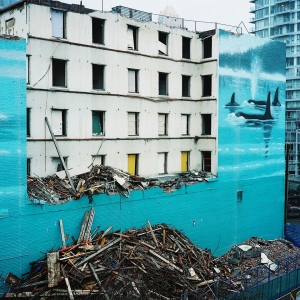
The End of the Cecil Hotel, Ross Den Otter
shari: WHEN DID YOU get your artistic start?
ross: That’s hard to define. I started doing theatrical lighting when I was 13. I was given my first camera a little later that year. I’d always been involved in the arts; theatre, dance, and visual but I don’t think I took anything too seriously until grade 11 when I decided to opt out of some math classes in order to explore visual communications. That choice meant that I couldn’t directly apply to study sciences at university but it did qualify me for my first newspaper job, which made me realize I’m a rather lousy journalist.
shari: IT CAN BE A TOUGH GIG so what inspired you to continue following a creative path?
ross: Hardheadedness and a fear of jobs that have one or more of the following: ties, Hair nets, name tags.
name tags. *shudder*
shari: WHAT IS YOUR PERSONAL PHILOSOPHY when it comes to art?
ross: Satisfy yourself with the process. The work will never be perfect, so find perfection in the processes, not the works.

shari: WHAT CAME FIRST? Painting or Photography?
ross: Historically painting came before photography… :) For me photography came before painting… by about 20 years, but break-dancing came before both.
Break dancing? *Shari pauses interview to rummage through interwebs in an attempt to find old footage of the alleged events*
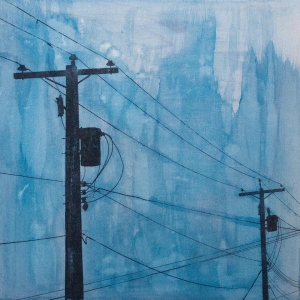
Lines, Ross Den Otter
shari: DID YOU TRAIN FORMALLY with any art classes or did you take a more organic, non academic approach?
ross: I studied photography formally for a year and informally ever since. I believe in whole life learning. Growth in any practice, be it medical, law or art, only comes with continued learning. To remain relevant one must be constantly learning. The mentors I’ve learned most from have sought to be students throughout their careers, and for that, their work shows no signs of age.
shari: IF YOU HAD TO PICK ONE what would be your favourite medium? The one you couldn’t live without?
ross: Water, which is common for all of us and It’s hard to process film without it.
*Shari stares at reader with her eyebrow raised while wondering how to re-word this specific question so that it’s interpreted less literally in the future, weeding out the wise acres*
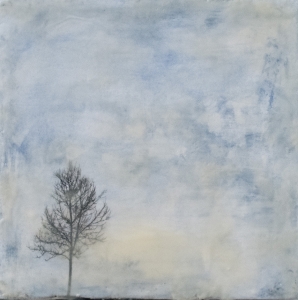
Currently Untitled, Ross Den Otter
shari: YOU’VE DEDICATED YOUR LIFE to some pretty great causes is there one in cause in particular you’re close to? And why?
ross: There are two. I donated my first works to “Art for Life” which supported “Friends for Life”. I have an uncle that gave a camera to me when I was early on my path. It came with an obligation; that when I was in a position to give back to others, I would. I’m certain there will be a time when I will need help.
The other charity I’ve supported for some years is Arts Umbrella. I’ve been donating work to their fundraising gala “Splash” since 2010. Arts Umbrella engages youth with art. In my youth, the camera was my bridge to understanding my science classes. Arts provide that bridge. The arts always seem to fall first in budget cuts, and to be honest, I have no idea why. I don’t see a distinction between art and science. I see art as science, and I see science as art; one isn’t exclusive of the other. A pathologist looks for anomalous forms in the compositions of MRIs or CT scans as an artist would. I could extend the idea that a pathologist is an artist. Now having said that, artists should be discouraged from engaging in pathology without proper training.
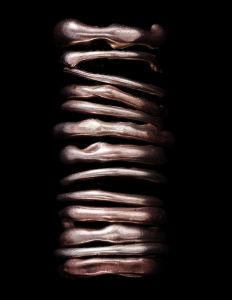
A stack of shibuichi rings, Ross Den Otter
shari: TELL US ABOUT YOUR creative process. Does it differ from medium to medium?
ross: I started working with a camera because I lack the patience for other media. Working with a camera makes you think about composition by subtraction; everything is there and the photographer reduces the elements to make a composition. It’s a bit like stone carving; chipping away until the form is revealed. That subtractive thinking might be why I moved into goldsmithing and lost wax casting in particular. A wax model is reduced from a larger block, it’s form set in plaster, burnt out by heat and replaced in a more precious metal form. Painters work additively; the canvas is blank and the artist is responsible for adding the marks. When I started working in mixed media I had to adjust my mindset. Photographers often strive for images without flaws, especially today when working with digital tools. Those unwanted elements in the composition can be altered in a post processing environment. This idea of post processing isn’t new, photographers have always manipulated images while seeking perfection. Mixed media forced me to either embrace those flaws, or start over when the work went in a direction other than my preconception. I had to reevaluate my conceptions. I now look at those marks left by the elements of chaos as a fingerprint, that isn’t mine, on my work. I see it now more as a collaboration with a silent partner.

Ross Den Otter
shari: WHO ARE YOUR main creative influences?
ross: It depends. When I’m teaching I like to keep the students either engaged, or at least awake, through laughter, so I’d say Andy Kaufman and Robin Williams. Photographically, I’m inspired by Elliot Erwitt’s ability to tell a story with a single frame of film. Duane Michals story telling through photo sequences. Irving Penn’s precision, technique and themed bodies of work, but speaking selfishly, I find the enthusiasm of my students as inspiring as the works done by those masters. If you don’t feel any enthusiasm, it’s hard to find motivation.
shari: DID YOU FALL INTO your personal style or was it developed over time?
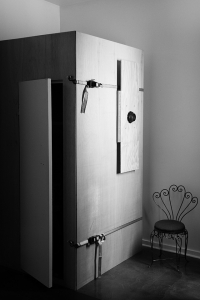
Camera Obscura, Ross Den Otter
ross: Funny you should ask. I don’t seem to have a defined personal style. I’ve had many visitors to my studio ask how many artists worked on the works on my walls when all those works were my pieces. Style development might be the one class that I’m most poorly qualified to teach. Actually, pathology would be.
shari: TELL US about your favourite project to date?
ross: Right now I’m particularly fond of my closet sized Camera Obscura “Paper Portrait Sessions” project. It’s a series of photographic portraits that I’ve been making with a walk-in closet sized Camera Obscura. The series looks at over five hundred years of photo technologies from the renaissance in the form of the Camera Obscura, to the 19th century Fox-Talbot Talbotype paper negative process, the 20th century electronic flash and the 21st century flatbed scanner.
(interview continued below the video jump)
shari: WHO IS THE ONE PERSON (or people) who supported you throughout your journey?
ross: My parents. I don’t ever recall them telling me that any of my ideas were stupid. They encouraged me to explore all of my ideas. I have lots of stupid ideas but you don’t know that they are stupid unless you try. …and my wife. She’s figured out a way for me to explore fewer of my stupid ideas; she’s my idea curator.
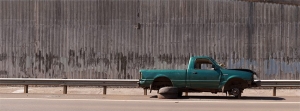
Found on Road Dead, Ross Den Otter
shari: TELL US A LITTLE (or big) something about yourself that no one knows.
ross: Well… I’m not too shabby with keeping secrets.
shari: WHAT WAS IT LIKE meeting Fred Herzog?
ross: When you know someone by reputation only and you meet that person for the first time and you spend your first few moments trying not to sound stupid and then questioning what you had just said and not listening as well as you should and speaking with run-on sentences… It was a bit like that. Trying not to sound stupid could be a full time job for me.
*a grin spreads across shari’s face similar to the one the Grinch sports as she realizes she isn’t the only one with little to no chill*
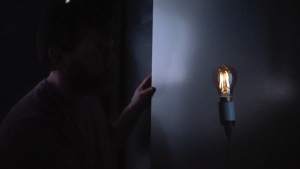
Standing inside Camera Obscura
shari: WHO IS YOUR one dream client and why?
ross: I find it easiest when I don’t have to work to the agenda of others, and when I’m given a deadline, so my dream client would be one that doesn’t impose an agenda and gives me a deadline.
shari: IF YOU COULD COLLABORATE with anyone (living or dead) who would it be and why?
ross: Collaborations can be challenging because egos can block creative exchanges. Because I’m an artist that is driven by process, I’m usually more interested in observing the processes of artist that are willing to share their methods. We all have unique mindsets, points of view, hand and eye coordination and patience. Each of those qualities, and so many more, enable us to create work that is unique to every artist. I feel that every piece that I’ve finished started with a piece that another artist finished before me.
shari: IF YOU HAD TO PICK another career other than the one you have now what would it be and why?
ross: What exactly is a career?
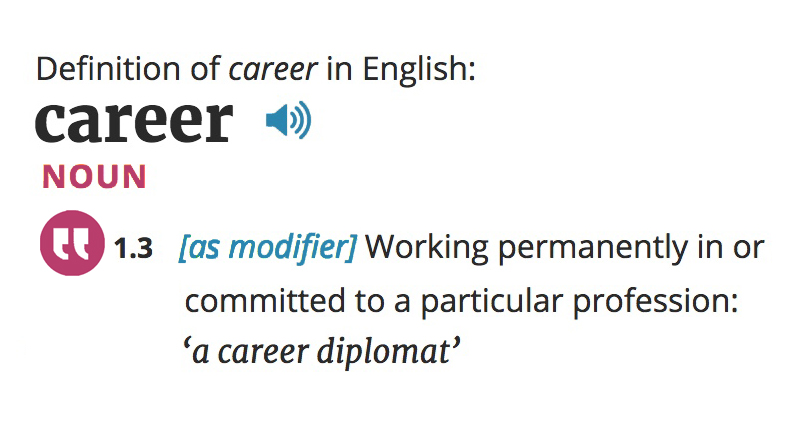
For future reference and because I’m a wise acre. Definition of career as per Oxford Dictionary. ?
shari: IF THERE WAS ONE THING you’d want people to know about you and/or your work what would it be?
ross: The work might seem random, but it makes sense to me.
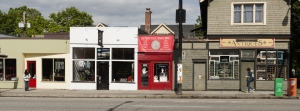
4300 Main Eastside v3, Ross Den Otter
shari: IS THERE ANYTHING ELSE you’d like us to know? Your next project?
ross: I’m working on a spinoff project photographic project from my “Main+Hastings” ongoing series called “In Development”. “Main+Hastings” is a series of panoramic digital photographic images that look at the mixed uses of buildings along those two Vancouver arteries. I limited the area that I could photograph to either Main Street or Hastings Street. I didn’t photograph the actual intersection. “In Development” is not limited by geography; I’m limiting the subjects to buildings that have either a development or a rezoning application sign. For this series, I’m using expired film and making the images with cameras that I bought at thrift stores. The series looks at end of use.
(interview continued below the video jump)
Thanks again Ross for the great interview! (I’m now off to see if I can find those break dancing videos.) Anyone wishing to view more of Ross’s work, contact him or follow him can do so through the following websites:
(Click any of the links below to take you to instant Ross.)
In peace, love and art,
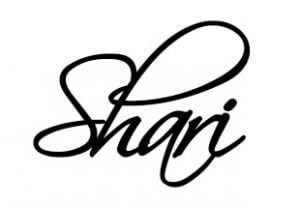
P.S. Adore this interview and need more? SIGN UP BELOW for more goodness and have interviews, decadently luxe art and frolicking unicorns sent directly to your inbox.
SPREAD THE LOVE

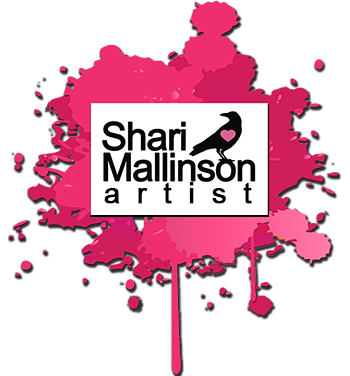
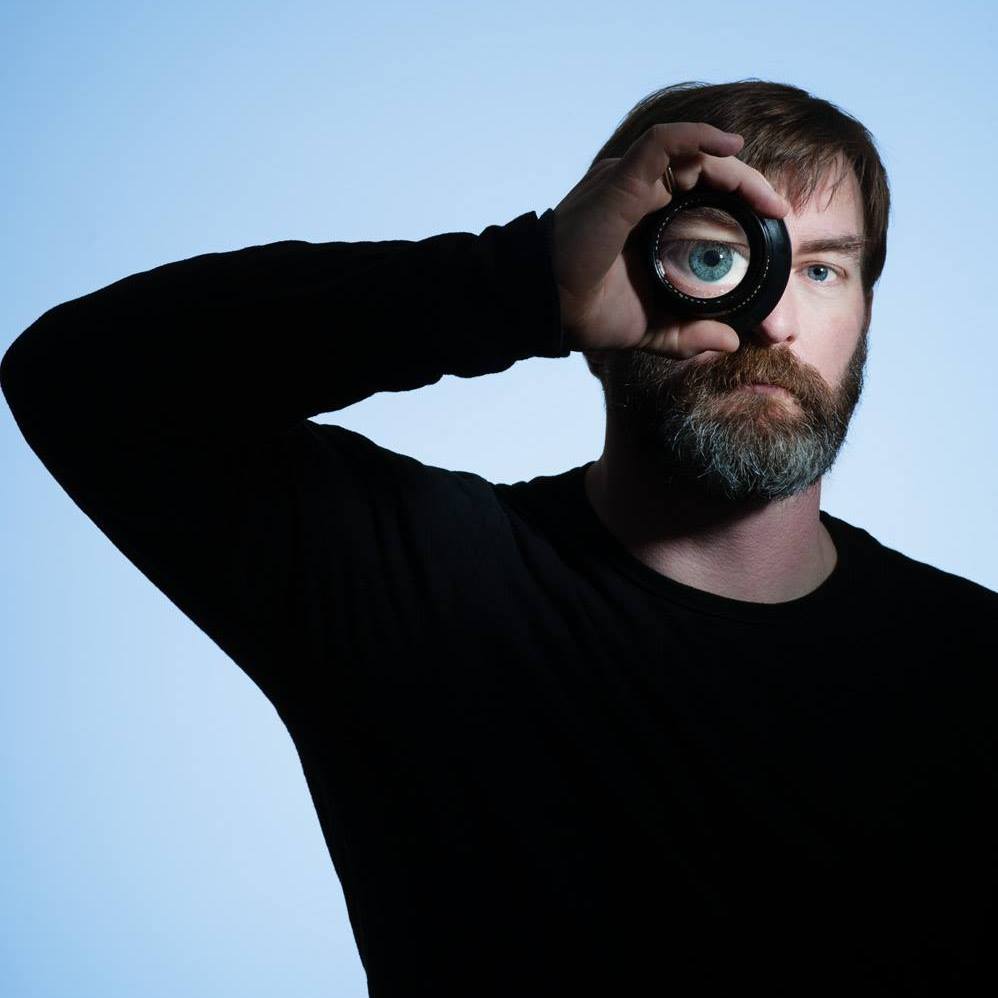
Trackbacks/Pingbacks